MediaPurgatory.com makes money by partnering with advertising networks and displaying ads on its articles. If you purchase anything by clicking on the ads featured in this article, the site’s owner may receive compensation for that purchase.
Christopher Nolan is a “love-him-or-hate-him” kind of guy. He has a large following of die-hard fans who consider every new movie he releases to be “the best movie ever,” but he also attracts some of the harshest critics who consider him to be one of the most overrated filmmakers of all time and not deserving of the praise he’s getting.
So, in this article, I’ll go through all of Nolan’s movies, examine Nolan’s strengths and weaknesses as a film director, and try to answer the age-old question: “Is Christopher Nolan rightfully considered to be one of the greatest filmmakers of our time, or if he is overrated as hell?,” all while trying to remain as objective as possible (wish me luck).
Of course, this is just an opinion and you are more than welcome to disagree with everything said here, but the goal of this article is to entertain and open a discussion on Nolan rather than make a definitive statement about the guy. So, without further ado, let’s dig in!
But, before we begin, I must warn you that there will be spoilers for the films discussed. So, if you haven’t seen a particular film, feel free to skip that part of the article.
1. Following (1998)
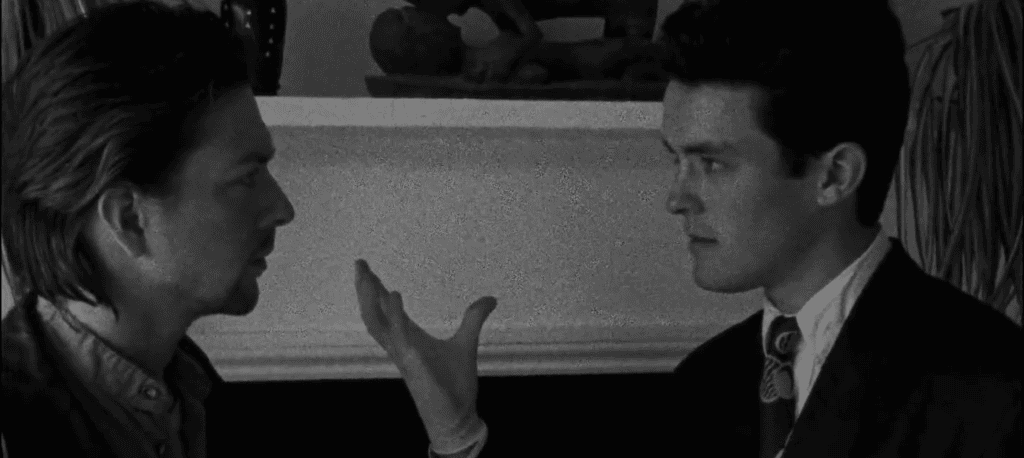
Nolan made his first movie on a shoestring budget of only $6000, making Following one of the cheapest successful movies ever made.
For the money, Following is as good as it gets. It may not be as iconic as Robert Rodriguez’s El Mariachi (1992) and it may not have a cult following like Kevin Smith’s Clerks (1994), but it’s definitely one of the best “no-budget” movies of all time and a must-watch for aspiring filmmakers. It’s rare to see a film director do so much with so little, and with his first movie, Nolan shows that he has a lot of potential.
Verdict: Not Overrated
2. Memento (2000)
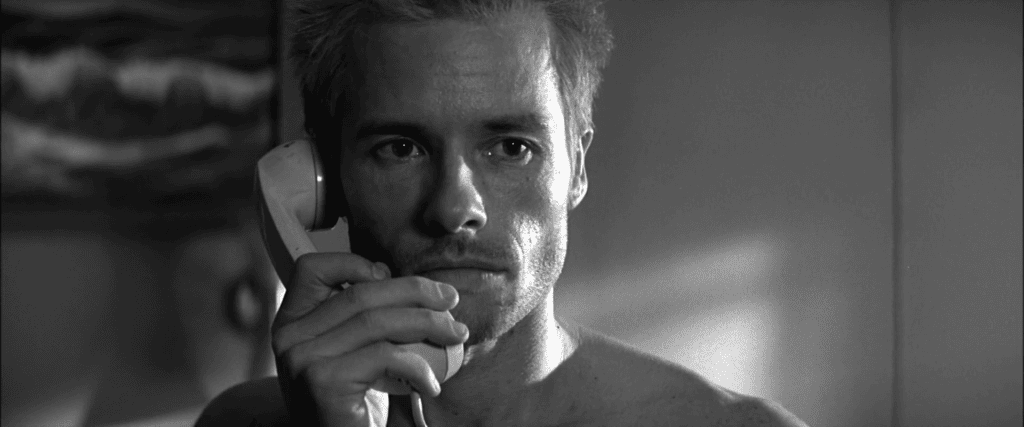
When I watch a movie or read a book, I want to experience a great story. Nolan’s second movie is considered a masterpiece, not because it tells one, but because of the way the story is being told: backward. As for the story itself—it’s nothing extraordinary (spoilers ahead). It’s just about a short-term memory guy tricking himself into shooting another guy. Seriously, that’s it!
Plot-wise, Memento is very similar to Nolan’s first movie. Both films use non-linear storytelling where the protagonist is being manipulated by everyone else, but Memento goes an extra step further, in that the protagonist also manipulates himself.
It’s definitely a good movie, and I would say—an improvement when compared to The Following, but I consider it to be slightly overrated because of all the praise it’s been getting. See, Memento is often considered a modern masterpiece and is frequently listed as one of the greatest movies of the decade, but I would have to disagree here.
For a book or a movie to be considered “great,” it has to have a great story. Memento tells an averagely good story in an interesting and complex way, but as I said earlier, it doesn’t actually have a great story to tell. It’s a solid four-star (out of five) movie, but not a classic.
Verdict: Slightly Overrated
3. Insomnia (2002)
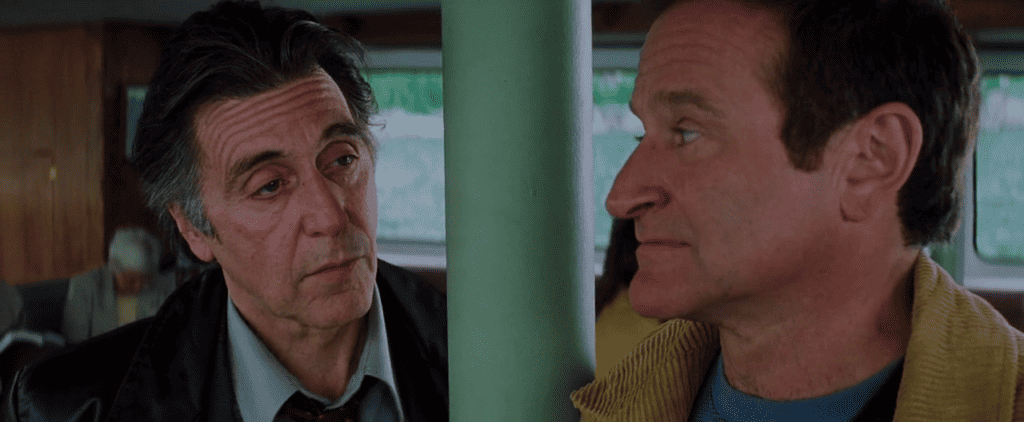
Hollywood often remakes non-English movies for American audiences by making the movies exactly like the originals, while adding nothing to the plot or the character development, but Insomnia is one example of when a remake is done right. Nolan made significant changes to his version so that we can have a completely different experience when we watch the American film.
*spoilers ahead*
The Norwegian original is about an evil detective who ultimately gets away with what he’s done, but he’s stuck with his insomnia for the rest of his life as punishment. Nolan’s movie is about a good detective who has lost his way trying to do the right thing, and he is trying to get back on track. In the end, he manages to redeem himself, and, unlike his Norwegian counterpart, is finally able to “sleep.”
Both versions are excellent, but I prefer Nolan’s version. Also, in my opinion, Insomnia has the most emotionally powerful ending of all of Nolan’s movies.
Al Pacino got much-deserved acclaim for his acting, but the actor whose performance was somewhat overlooked was Robin Williams. Seriously, Williams is excellent in this one. Although he was primarily a comedian, he was at his best in his serious and villainous roles. Definitely one of the greatest American actors of all time. He is greatly missed.
Verdict: Not Overrated
4. Batman Begins (2005)

Let me just say it: Batman Begins is one of the finest comic-book movies ever made. Nolan made the right choice to cast Christian Bale as Bruce Wayne, and perhaps no other actor was more suited for the iconic role.
The film has great villains, great action scenes, a great finale, and just great writing overall. Like with Nolan’s previous film, I struggle to find anything wrong with this one (which cannot be said for the criminally overrated sequels, but we’ll get to those in a minute). Arguably the best Batman movie ever made!
Verdict: Not Overrated
5. The Prestige (2006)
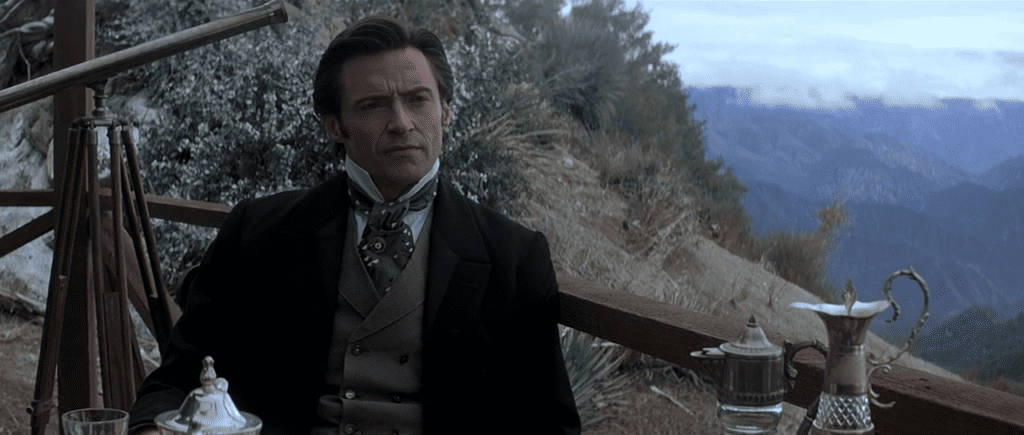
In 2006, Christopher Nolan decided to adapt Christopher Priest’s 1995 novel of the same name for the big screen, and he did a damn good job. The acting here is top-notch. Everyone from Bale to Jackman to Johansson did an excellent job, but the man who surprised me the most was David Bowie. His portrayal of Nikola Tesla was Oscar-worthy and is one of few instances in cinema history when a musician outacts professional actors.
However, I have a little problem with the twist ending. For a twist to work, it has to be simple, emotionally impactful, and mind-blowing at the same time. Perhaps the greatest example of a twist ending done right is M. Night Shyamalan’s The Sixth Sense.
But, if it takes Christian Bale and Hugh Jackman to have to explain to us for fifteen minutes how “brilliant” and “clever” everything is, the ending somewhat loses its emotional punch. For me, however, this was only a minor issue. Overall, The Prestige is a solid five-star film and one of Nolan’s best.
Verdict: Not Overrated
6. The Dark Knight (2008)
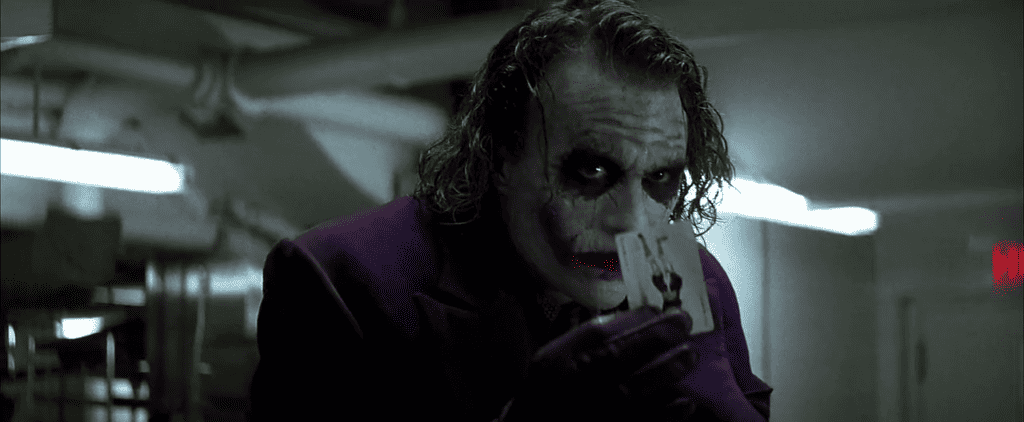
I know that I’m going to get crucified for this, but I consider The Dark Knight to be one of the most overrated movies of all time. Heath Ledger practically carries the entire movie on his shoulders with his acting skills, but the writing here is just… terrible.
I can’t go into detail here on everything wrong with the movie because it would be too much text, but I have written an entire article on The Dark Knight, and if you’re interested, you can read it by clicking the link below.
The Dark Knight Sucks!| The Most Overrated Batman Movie Ever Made!
Verdict: Overrated as Hell
7. Inception (2010)
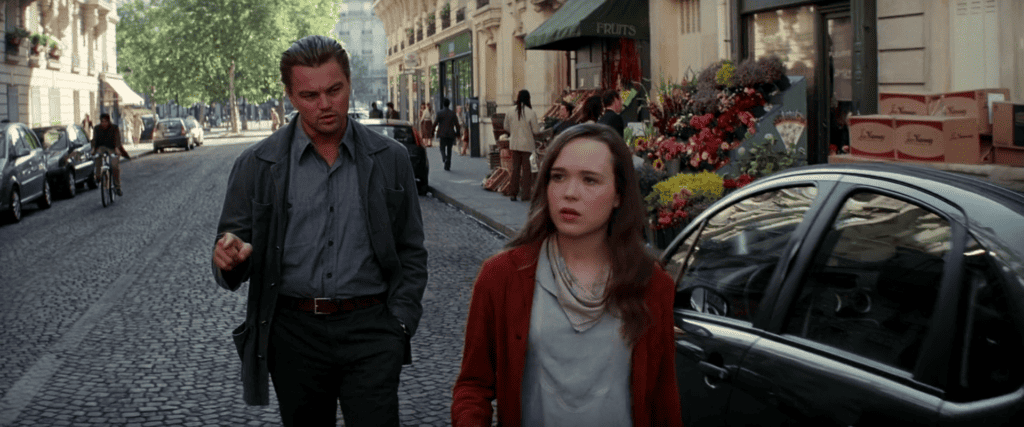
Inception was a massive improvement compared to Nolan’s previous film. It was complex, intelligent, and definitely something unique in the history of cinema. I’ve never seen anything like it. Sure, It drew some comparisons to The Matrix, but to be honest, except for having a complex structure, the two films don’t have much in common.
But, that said, Inception is far from a perfect movie. For starters, the film shares the flaws of Nolan’s first two films, Following and Memento: not much character development. Except for Cobb (Leonardo DiCaprio), I didn’t get to know or care about any of the characters; it seems they are all there just to do the job and go home.
Inception was by far Nolan’s most ambitious and complex movie up until that point in his career, but “ambitious” or “complex” doesn’t necessarily mean “better.” Now, I did enjoy the movie, but the balance was a little off. There is too much emphasis on complexity and not much focus on the characters themselves.
But, all in all, I found Inception to be a great improvement compared to the massively overrated Dark Knight. Most critics consider Inception to be one of the greatest movies of the 2010s, and I don’t necessarily disagree, but Nolan has done better.
Verdict: Slightly Overrated
8. The Dark Knight Rises (2012)

I’ve already stated that I consider The Dark Knight to be Nolan’s most overrated movie, but its sequel is not too far behind. Nolan is all over the place here. The Dark Knight Rises tries to be a superhero movie, a cop movie, a war movie, a hostage movie, a disaster movie, a mystery movie, a romance movie, and God knows what else.
Just like its predecessor, The Dark Knight Rises has good acting and well-directed action scenes, but the writing is subpar.
One of the first things I’ve noticed is that there’s too much screen time given to secondary characters. It felt like this was more of a Joseph Gordon-Levitt movie than a Christian Bale one. Also, the entire film is saturated with cheesy one-liners like “Victory has defeated you,” and countless others.
And can someone please explain to me what the hell are the villains trying to achieve in this one? They have the trigger to the fusion reactor and can easily destroy Gotham at any moment and fulfill Ra’s al Ghul’s destiny, but they just mess around for five months for seemingly no other reason than waiting for Batman to recover, escape, return, and kick their asses.
Verdict: Overrated as Hell
9. Interstellar (2014)

Nolan turns up the complexity factor to eleven with this one, and I don’t blame you if you have to watch it twice to figure out everything that’s going on.
I will say this though: Interstellar has much better-written characters than Inception does. Cooper (Matthew McConaughey), Brand (Anne Hathaway), and Murph (Jessica Chastain) are much more vulnerable and relatable than Cobb, Ariadne, and… whatever the hell the other guys’ names were. Even TARS (the robot) had more personality than most of Inception‘s characters.
But, unfortunately, this is the only positive thing I have to say about Interstellar. Everything else about this movie sucks. We can see some of the major plot holes at the beginning of the movie. Cooper finds the NASA facility and he quickly learns that he is by far the most qualified guy in the facility to pilot a spacecraft that they have built. That’s right: in Nolan’s script, NASA has the budget to build ultra-expensive space vehicles, but they can’t afford or don’t know how to train pilots for them. Go figure.
However, the most ridiculous thing about Interstellar has to be the ending. This is a prime example of when a screenwriter tries way too hard to appear smart, but it backfires spectacularly (spoilers ahead).
So, let me get this straight (taking a deep breath): After Cooper ejects himself into “Gargantua” (the wormhole) and falls into the “tesseract” (which is this four-dimensional structure, apparently constructed by humans from the future), he is connected with Murph from the past through the power of love (which is his great love for digital bookshelves, apparently), he realizes that he was her “ghost” all along, and then he uses gravitational waves to form the dust patterns in Murph’s room (the ones that we saw at the beginning of the movie) to give her and his past self the coordinates to NASA’s secret facility, and then he transmits the data that TARS has gathered from “Gargantua” into Murph’s wristwatch using Morse code so she can use it to save mankind.
I want to have a fistfight with whoever wrote this. But wait, there’s more!
After being saved by astronauts and brought to “Cooper Station” (a space station orbiting Saturn), Cooper awakes to learn that his daughter, Murph, is still alive and that she’s on her way to the station to finally see her father. They reunite together after more than half a century… but, after just two minutes of talking, Murph tells her father to get lost?!
Also, Murph is in her room surrounded by her children and grandchildren, (and therefore Cooper’s descendants), so you would think that Cooper would be dying to meet them as well, but for some strange reason, he is completely uninterested in getting to know them, and they all seem to share his lack of enthusiasm. They barely even look at each other. This is extremely unnatural, but hey, abysmal writing like this is to be expected from the Nolans by now.
Verdict: Overrated as Hell
10. Dunkirk (2017)
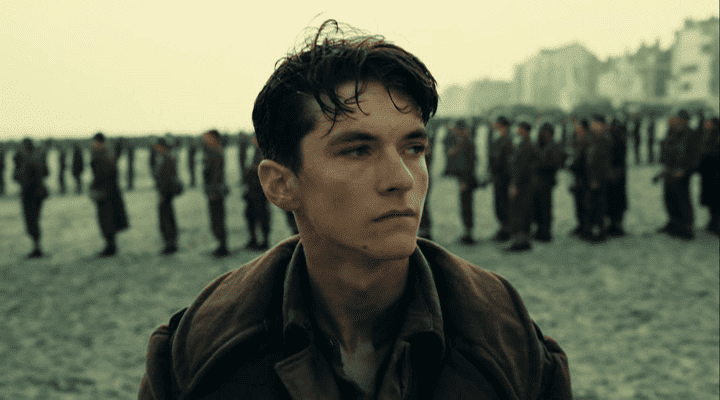
I can explain everything wrong with Dunkirk with just one word: boring. I’ve already said that I consider Interstellar to be an overrated movie, but it did have great characters. With Dunkirk, Nolan went in the opposite direction and made damn sure we don’t get to know or care about any of them.
Now, Dunkirk does have breathtaking visuals and incredibly well-directed action scenes, but they are not being held together by a great story, or any story for that matter.
Many people praised the musical score by Hanz Zimmer, and although I wouldn’t necessarily disagree, I don’t think it goes well with the movie. You see, the music tries to convey the uncertainty and tension during the Dunkirk evacuation of 1940, but for this to be effective, I ACTUALLY HAVE TO CARE ABOUT THE CHARACTERS! Nolan deliberately keeps them emotionally distant, making it very difficult for me to relate to any of them.
Upon release, many critics proclaimed Dunkirk to be Nolan’s greatest work and one of the greatest war movies of all time, but every person I know who has seen the film has said the same thing to me: it’s just plain boring. A great war movie shouldn’t be all about explosions and mayhem; great characters we care about are necessary as well, but it seems Nolan has completely forgotten about that second part.
Verdict: Overrated as Hell
11. Tenet (2020)
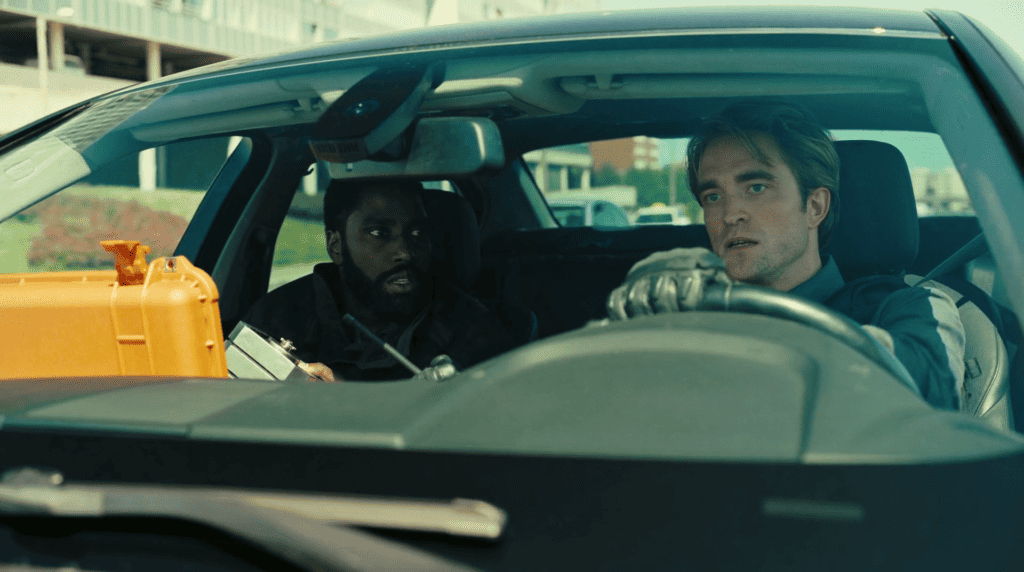
If you thought Inception and Interstellar were complex, wait till you see Tenet. When I watched the first two aforementioned films I understood 90-95% of what was going on and that was more than enough for me to be able to follow along. But, the first time I watched Tenet, I only managed to understand half of what was happening on the screen. By the time I got to the end, it got so complex that I was praying for Sator to activate the algorithm and end it all.
After I finished watching the movie, I had to watch a video explaining everything that was going on. So, now that I do understand it, do I think that Tenet is a masterpiece? Well, a masterpiece of complexity, for sure, but a masterpiece of storytelling? Hell NO!
Let me ask you this: If I wrote the most complex article ever written, would that alone mean that I am a great writer? If I started to write this review and then inverted the text dna detrats gnitirw gnihtyreve sdrawkcab, and then inverted the text again, would that alone make the review a masterpiece?
I’ve already stated that “complex” and “ambitious” does not necessarily mean “better,” and just like with Dunkirk, I didn’t get to know or care about any of the characters. John David Washington, Robert Pattinson, and Elizabeth Debicki are all excellent actors and they did the best they could with the material given to them, but they just couldn’t save the film from Nolan’s abysmal writing.
Tenet has a great soundtrack and a cool “reverse car chase” scene, but, like most of Nolan’s movies, it relies a bit too much on being “smart” and “complex” rather than actually giving us great characters or a great story.
Verdict: Overrated as hell
12. Oppenheimer (2023)
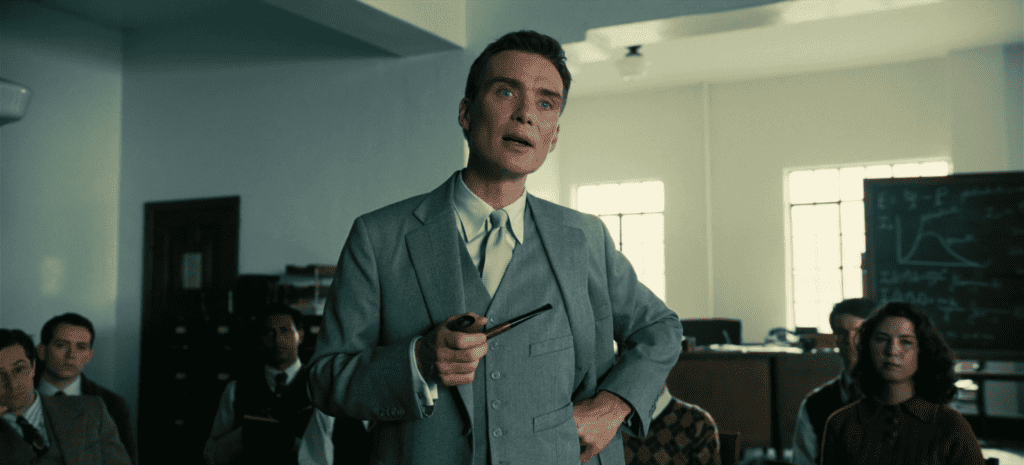
Oppenheimer is a 3-hour biographical film about J. Robert Oppenheimer, the director of the so-called “Manhattan Project” and inventor of the atomic bomb. It is based on the 2005 Pulitzer Prize-winning biography American Prometheus: The Triumph and Tragedy of J. Robert Oppenheimer by authors Kai Bird and Martin J. Sherwin. This is the second time (after The Prestige) Christopher Nolan has used a book as a source material for his script, and once again, everything is done pretty well.
Despite its long running time, Oppenheimer does a good job explaining who its main subject was, how he got to invent the most dangerous weapon known to man at that point, as well as his subsequent troubles with U.S. authorities for his alleged communist leanings. So why “Slightly Overrated”?
Well, although I acknowledged that Oppenheimer is definitely a well-made film, for some reason it has a mindblowing rating of 8.4 on imdb.com, which means it is ranked higher than classics like Lawrence of Arabia, A Clockwork Orange, and Scarface, which is simply ridiculous. Leave it to Christopher Nolan fans to, once again, blow everything out of proportion, and proclaim the latest one of his movies to be “one the greatest of all time” for no reason whatsoever. A rating of 7.4 would be a lot more realistic.
Verdict: Slightly Overrated
Conclusion
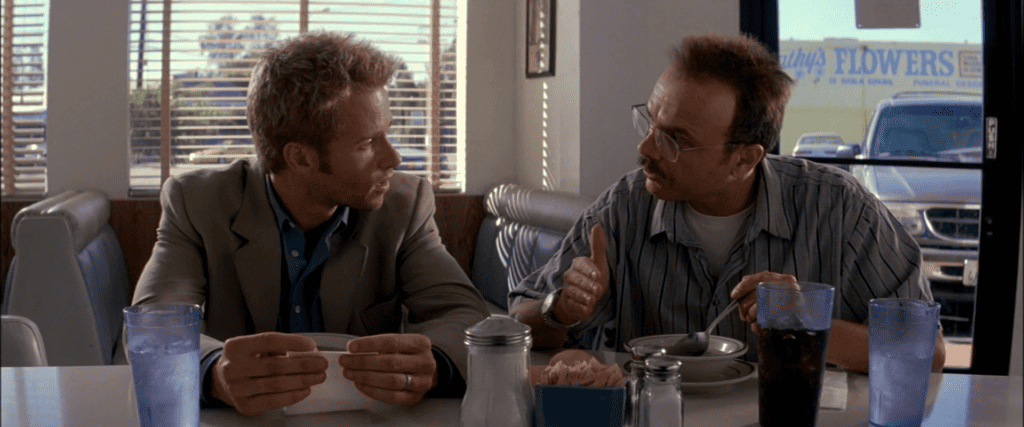
I can divide Nolan’s entire filmography into three periods:
- Beginnings (1998-2000)
- Nolan’s “pretentious period” (2008-present)
- Nolan’s best period (2002-2006)
1. Beginnings (1998-2000)
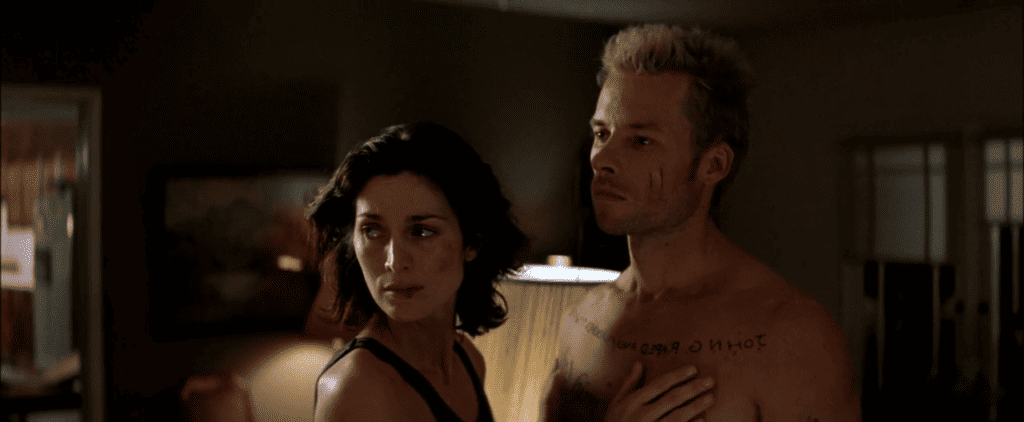
Nolan’s first two films were expertly done and are a must-watch for beginner filmmakers. With a limited budget and without support from a major film studio, Nolan showed that he had what it takes to make a profit and get people talking.
Because he managed to do so much with so little (especially with Following) I don’t think I can criticize his first two movies too harshly, although I did notice some flaws that are going to become more prevalent later in his big-budget films.
2. Nolan’s “Pretentious Period” (2008-present)

By 2008, Christopher Nolan was already a well-established director in Hollywood with five excellent films under his belt. Warner Bros. gave him all the support that he needed to make the kind of blockbusters that he always wanted to make, and money was no longer an issue.
But, during this period the problems that were forgivable in his first two movies became even more prevalent, and new problems emerged. Starting in 2008 Nolan focused on making mainly two kinds of movies: his Batman sequels (The Dark Knight and The Dark Knight Rises) and his “complex” films (Inception, Interstellar, and Tenet).
The Batman sequels had phenomenal acting and killer action sequences, but I had a problem with the dialogue, how the villains were written, and the stories themselves. Almost all the characters I was supposed to root for were trying too hard to impress me with how stoic, emotionless, and unaffected by everything they were, and they ended up being unlikeable.
Also, I would like to mention that one-liners are only effective when they are used in moderation, and the best action movies only have two or three of them. But, in his last two Dark Knight movies, Nolan completely saturates the entire film with cheesy one-liners to the point that it becomes extremely annoying, and makes the characters look like try-way-too-hard-to-appear-cool douchebags.
Although the Joker and Bane were extremely well played by Ledger and Hardy respectively, I cannot overlook how badly they were written. For example, Bane wants to destroy Gotham and fulfill Ra’s al Ghul’s destiny, but although he can activate the bomb at any point during the second half of the movie, he just messes around for months, seemingly for no other reason than giving Batman enough time to recover and come back to kick his masked ass.
And I’m not even going to say anything about the Joker because I don’t even know what the hell he was trying to achieve in The Dark Knight. I go into detail about everything that’s wrong with that movie in my The Dark Knight Sucks! article.
Now, let’s talk about Nolan’s “complex” movies (Inception, Interstellar, and Tenet). For my taste, Inception is the best of the bunch. It’s a great, well-executed idea with a powerful ending, but it’s lacking interesting and relatable characters.
Interstellar had much better characters, but it tries way too hard to be “the smartest and most ambitious movie ever made,” and it ends up being a little silly with its finale.
Tenet, on the other hand, had no redeeming qualities. It seems that the movie exists solely to give you a headache.
It was during this period that I feel Nolan deserved the nickname that Screen Junkies gave him: “The Michael Bay for people who’ve read a book in their life.” Just like Bay, Nolan’s movies from this era rely way too much on well-directed explosion and action sequences, but the dialogue, the character work, and the writing are not that great. Nolan just adds a lot more complexity into the mix, hence “the Michael Bay for smart people” label.
3. Nolan’s “Best Period” (2002-2006)
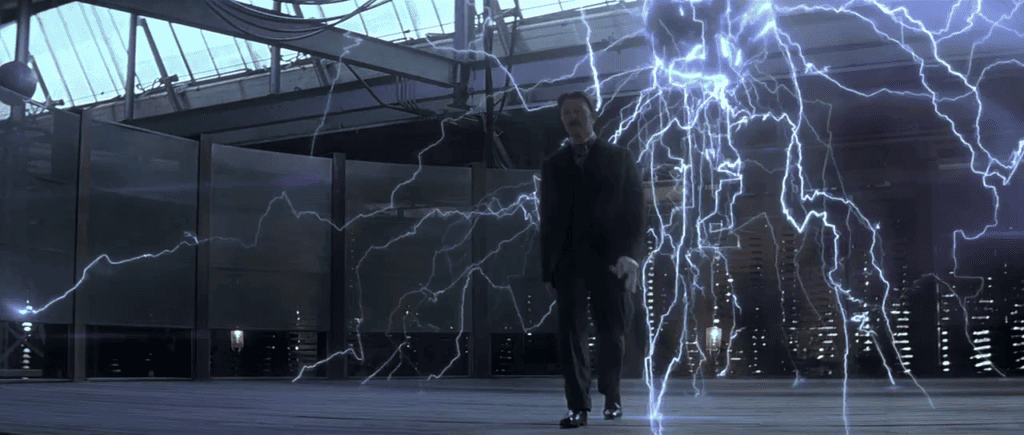
We’ve already covered Nolan’s beginnings (his first two movies) and what I like to call his “pretentious period” (everything he has released since 2008), but between those two eras, from 2002 to 2006, Nolan has released his strongest material in terms of storytelling, dialogue, and well-written characters.
The three movies he released during this period don’t (or at least don’t have to) rely on flashy explosions, exciting car chases, or ultra-complex scripts to hold our interest. For a short period, it seemed that Nolan had achieved a perfect balance between a good script, relatable characters, and telling a powerful story.
Now, I’m not saying that these movies are flawless (looking at you Prestiege‘s ending), but this is as close to perfection as Nolan ever got. So why does this period stand out so much when compared with what came before or after it? Well, I did some basic research, and immediately a pattern emerged: these are the only movies in Nolan’s filmography, where the source material was not written by either Christopher or Jonathan Nolan!
Insomnia is a remake of a Norwegian movie, and the script for the American version was written by Hillary Seitz; Unlike the overrated sequels which were written by the Nolans, Batman Begins was written by professional screenwriter David S. Goyer; And although Christopher and Jonathan did write the script for The Prestige, the source material (the novel) was written by Christopher Priest.
I’ve said it before, and I’ll say it again: Nolan is excellent behind the camera, but he sucks on the keyboard. It’s great when someone else writes his scripts (Insomnia), when he collaborates with a professional writer (Batman Begins), or when he adapts material previously written by someone else (The Prestige, Oppenheimer), but it’s not so impressive when the Nolan brothers have to come up with everything themselves.
If the studio gives Nolan and his brother an unlimited budget and complete artistic control, the only thing they are going to do with it is, either write a super-complicated script (because the Nolans are incapable of writing better, only more complex) or make an action-packed mess, not held together by a good story or good character work… or a hybrid of both.
Final Verdict: Is Christopher Nolan Overrated?

Well, if I judge him by his first five movies, then no. But, if I ignore everything that he has released up until 2007, and judge him solely on his material starting with The Dark Knight and continuing to this day, then yes!
To conclude, I’d say that, in my book, Christopher Nolan qualifies as the second most overrated film director of all time, just after Quentin Tarantino. I’m sorry, (and I know I’m going to get crucified for this), but, in my humble opinion, Tarantino is the undisputed king of “overratedness,” and no one even comes close. Not even Nolan.
Related article: Quentin Tarantino Sucks | The Most Overrated Film Director of All Time
So, there you have it! I hope you enjoyed the article, and if you are a Nolan fan, I hope you didn’t take anything personally.
Now, where was I? Oh yes! Have I told you about Sammy Jankis?

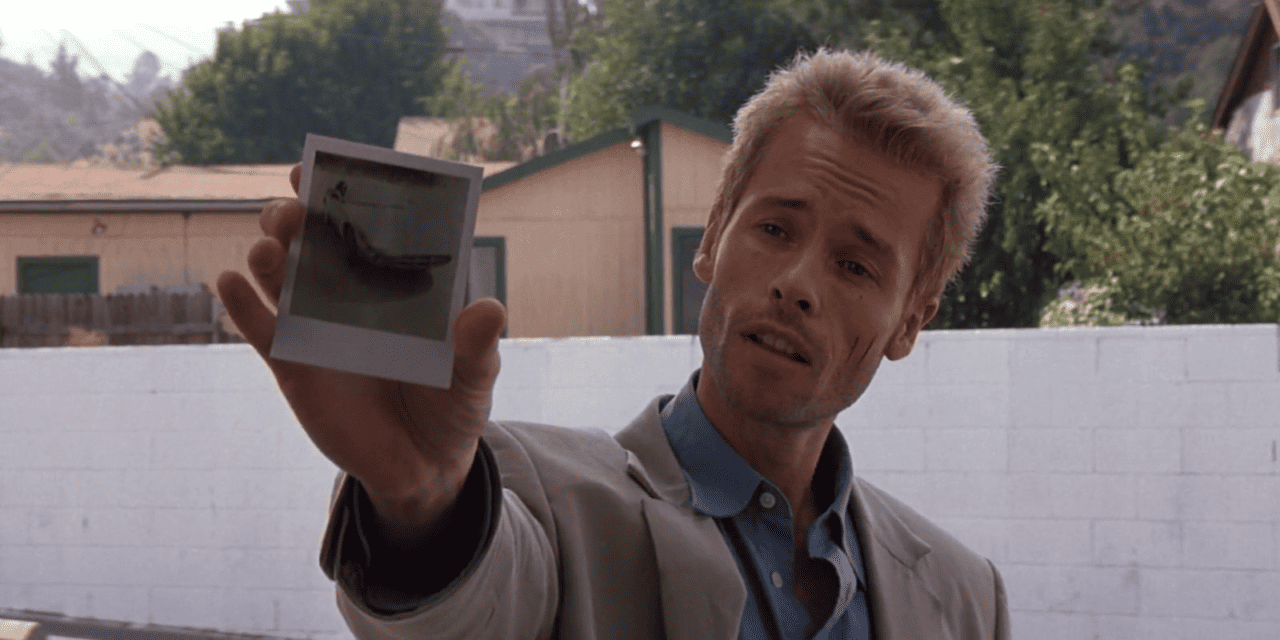

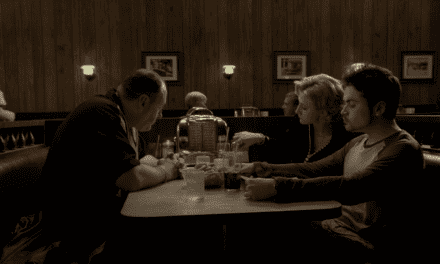
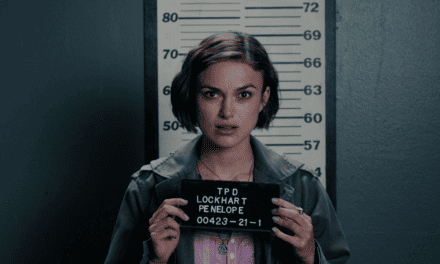

Recent Comments